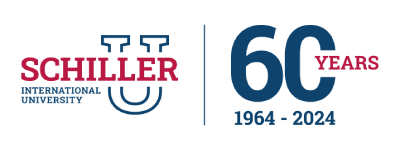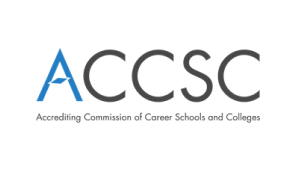In October 2025, the United States entered a major government shutdown after Congress failed to approve a new federal budget. While the immediate effects like furloughs, closed agencies, and missed paychecks captured headlines, the deeper implications involve power, negotiation, and institutional stability, making it the most disruptive political news since President Trump’s tariff policies.
At Schiller International University, events like this become real-world classrooms for students in the BA in International Relations & Diplomacy program. By connecting theory to practice, Schiller students learn how domestic crises shape global perception and diplomatic strategy.
What Triggered the 2025 Government Shutdown?
Every year, Congress must pass appropriations bills to fund government operations by October 1, the start of the fiscal year. In 2025, political polarization turned the process into a standoff.
• The Trump administration proposed cuts to previously approved funding, including foreign aid and domestic social programs.
• Democrats resisted, particularly on healthcare subsidies under the Affordable Care Act.
• Negotiations stalled over which programs to preserve, resulting in a lapse of funding and the 2025 government shutdown.
This impasse quickly evolved into a constitutional and administrative struggle over executive authority and fiscal control.
Who Is Affected and How
The shutdown disrupted millions of lives:
• Federal employees: Nearly 900,000 furloughed; about 700,000 worked without immediate pay.
• Government services: Agencies such as the NIH, CDC, and EPA paused or reduced operations.
• Air travel: Staffing shortages led to longer airport lines and delayed flights.
• Public benefits: Programs like WIC faced interruptions in some states.
• Economic output: The Treasury estimated losses approaching $15 billion per week.
Beyond direct costs, confidence in the stability of U.S. governance declined, a concern echoed in financial markets and foreign ministries worldwide.
What Makes the 2025 Shutdown Different
This shutdown stands apart for several reasons:
1. Permanent restructuring: Rather than viewing the lapse as temporary, the administration framed it as a chance to streamline federal agencies permanently.
2. Selective funding: The White House directed certain departments to prioritize or defund programs using discretionary authority.
3. Layoffs during the lapse: Thousands received reduction-in-force notices, triggering legal action.
4. Legal pushback: Courts questioned whether these layoffs and funding decisions violated the Antideficiency Act.
Such actions blur the line between budget negotiation and executive reorganization, making the 2025 episode a live test of checks and balances.
Political and Legal Tensions
Congressional leaders remain gridlocked:
• The House advanced a short-term resolution; the Senate rejected it along partisan lines.
• Democrats demand protection for social programs; Republicans insist on fiscal restraint.
A federal court has temporarily blocked further layoffs, signaling that judicial checks remain active even amid administrative upheaval.
Politically, each side seeks to control the narrative. While some Americans support aggressive cost-cutting, others see the 2025 shutdown as symptomatic of institutional decay and excessive polarization.
Global Repercussions
Despite the importance of resolving global conflicts, domestic instability in the United States reverberates across borders.
• Diplomatic reliability: Allies watch to see whether the U.S. can uphold its commitments in defense and trade.
• Global markets: Investors respond to delayed data releases and economic uncertainty.
• Soft power: Prolonged dysfunction undermines the perception of American governance as a model for others.
For students of global governance and international relations, these dynamics reveal the role of diplomacy in a connected world and how internal politics affect foreign credibility, a central theme in Schiller’s curriculum.
A Schiller International University Perspective
Schiller International University’s Bachelor of Arts in International Relations & Diplomacy and Master of Arts in International Relations & Diplomacy programs teach students to analyze complex global challenges through interdisciplinary study and experiential learning.
1. Systems and Power Analysis
Students dissect how different branches of government interact and how crises reshape political norms. The 2025 government shutdown becomes a vivid example of executive power vs. legislative constraint.
2. Negotiation and Mediation Skills
Shutdown negotiations resemble international treaty talks: both demand patience, framing, and compromise. Through simulations and case studies, students learn to mediate high-stakes political conflicts.
3. Global and Comparative Context
By studying across Schiller’s international campuses in Madrid, Paris, Heidelberg, and Tampa, students gain firsthand exposure to diverse governance models—insightful for comparing how other nations prevent similar fiscal breakdowns.
4. Policy Impact and Research
Students research how governmental paralysis influences global economics, security alliances, and humanitarian aid flows, applying classroom theory to practical analysis.
5. Experiential Learning
From Model UN conferences to crisis-management workshops to trips to the Europa Experience, Schiller emphasizes active learning. The current shutdown could serve as a live simulation, where students role-play congressional negotiators or foreign analysts advising their governments.
This integration of academic theory and real-world practice is how Schiller has shaped global leaders for six decades and what distinguishes its International Relations degree in the global education landscape.
Lessons for Governance and Global Citizenship
The 2025 U.S. government shutdown underscores deeper truths about modern democracy:
• Compromise remains vital for effective governance.
• Institutional safeguards depend on political culture, not just written law.
• Economic interdependence means domestic crises quickly become international concerns.
The 2025 government shutdown is more than a pause in public administration; it’s a stress test for American democracy and a lesson in how political decisions resonate worldwide. For aspiring diplomats and analysts, the event serves as a case study in leadership, communication, and ethical decision-making, all core competencies developed through Schiller’s global curriculum.
Students in Schiller International University’s International Relations & Diplomacy programs gain the tools to interpret, debate, and learn from such crises. In doing so, they prepare to become the globally minded leaders capable of navigating — and preventing — the next one in their future international relations career paths.
Sources: https://www.whitehouse.gov/omb, https://home.treasury.gov, https://www.cbo.gov, https://www.gao.gov, https://www.bls.gov

 Request information
Request information









